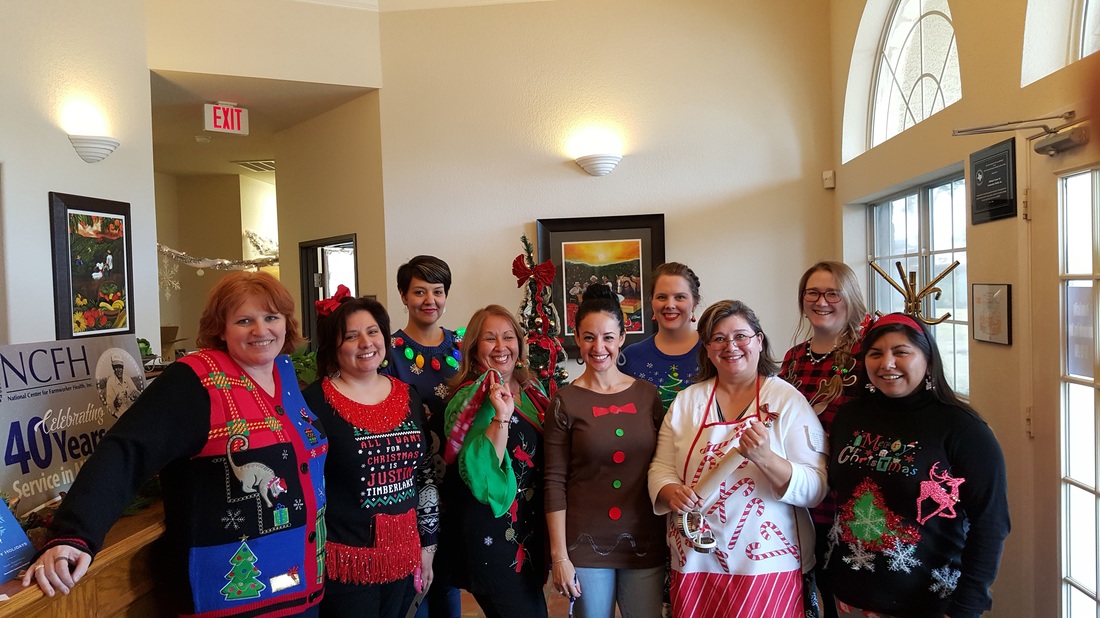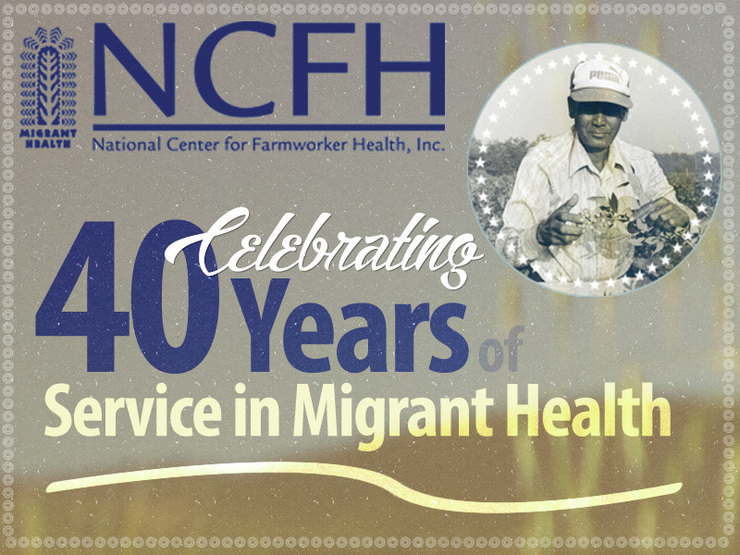|
This year we celebrated 40 years of service in Migrant Health, and we look forward to continuing work that champions increased access to care for US agricultural workers in 2016. In reflecting on 2015, the brief list below represents a few instances where NCFH appeared in the news. "Small clusters of workers moving quickly over vast rural swaths of sparsely-populated prairie and are difficult – and expensive – to reach, said Bobbi Ryder, CEO of the National Center for Farmworker Health." - "Mobile Health Clinics Provide Health Services to Ag Workers," The Prairie Star
Want to help us celebrate 2015 through a contribution? Consider donating to our Call for Health Program, a national patient navigation system that promotes health and well-being for ag worker families through bilingual educational publications and is a national call line that responds to questions on accessing local health care resources for agricultural workers.
 NCFH headquarters in Buda, Texas, transformed the past few weeks in preparation for our 3rd annual door decorating and ugly sweater contests. NCFH staff also hosted children from a neighboring daycare stopped by to for a visit and some sweet treats. Decorating Contest Winners were: NCFH teams flexed their creative muscles and had a great team building experience!
It is Christmas season and we see Christmas trees everywhere. Christmas trees are put up each year, yet many don’t stop to reflect on the hard work and consequences that agricultural workers experience in order for these trees to be in our homes. Prior to the 1950's, most Christmas trees were cut from the forest. Today, according to the National Christmas Tree Association, more than 90 percent are grown on farms growing nearly 350 million Christmas trees in the U.S. alone. There approximately 15,000 farms growing Christmas Trees in the U.S. and employing over 100,000 people full or part-time in the industry. With the high demand for Christmas trees during this season, agriculture workers working the pine trees become essential for the industry. However, they are exposed to the dangers of pesticides, herbicides, insecticides, fungicides, along with other occupational health risks. When we see Christmas trees during this season, it’s uncommon to stop and think of the dangers farmworkers face while working. Yet, more shocking is the fact that many of them have not received any health care services. For example, North Carolina is the leading producer of Fraser fir trees, one of the best selling Christmas tree species, but in 2014, in North Carolina only 10.5% of agriculture workers received health care services. Due to a low percentage of agricultural workers in the U.S being served by health centers, NCFH and NACHC have launched the Ag Worker Access 2020 campaign calling on every migrant health center grantee to increase the number of agricultural workers served by 15% each year over the next five years. NCFH has developed resources and tools to help health centers achieve this goal. Every agricultural worker deserves to be aware of his or her health care opportunities, accounted for in their health center, and receive quality health care services. They work the soil of this country for all of us to have food on our tables, and even to make our home look beautiful with a Christmas tree during the holiday season. So, join us in making this Ag Worker Access 2020 campaign a success and most importantly making sure all agricultural workers and their families receives health care services. In this holiday season, learn how you can help ensure agricultural workers are informed of the health care services available to them. And remember, if you have a beautiful decorated Christmas tree in your home…thank a farmworker. By: Joanna Arevalo
Video: Robyn Levine, USA, 2011.
|
The National Center for Farmworker HealthImproving health care access for one of America's most vulnerable populations Archives
March 2024
Categories
All
|




 RSS Feed
RSS Feed